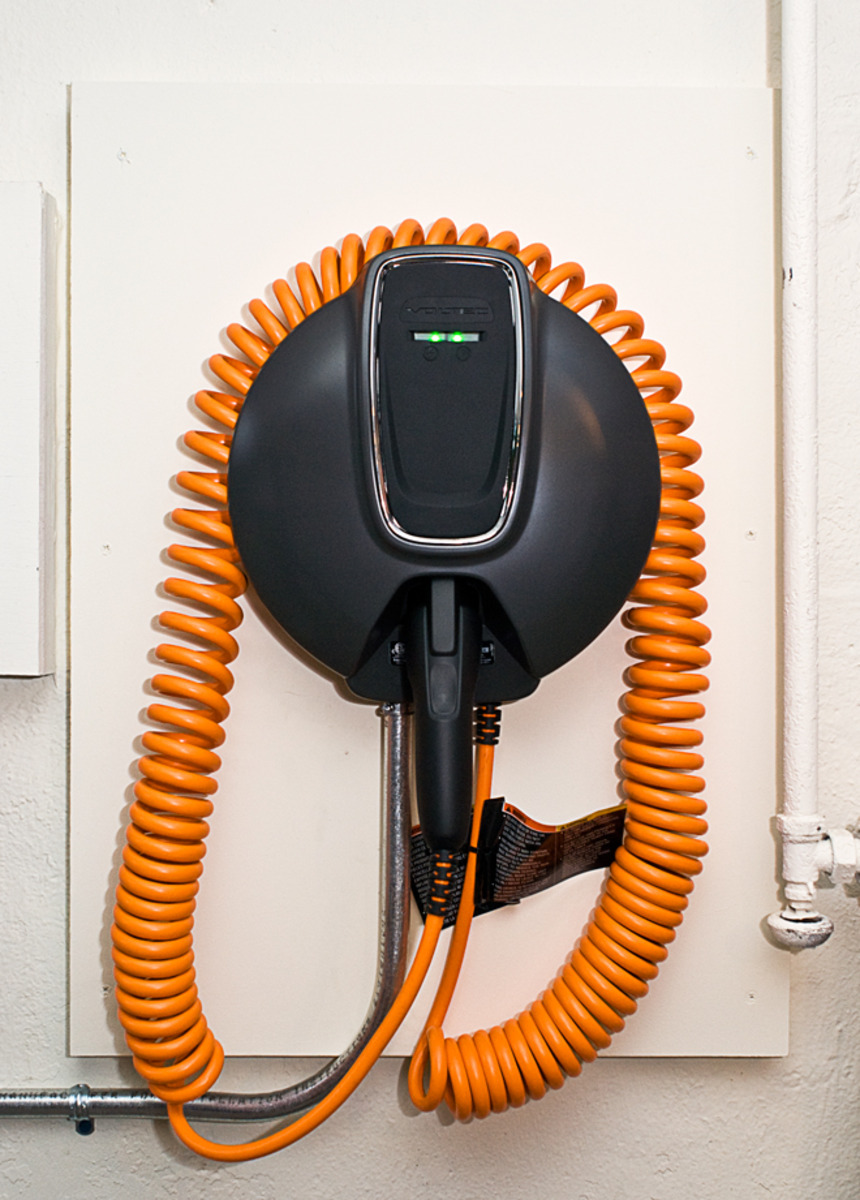
question mark on road: image via Flickr/ milos milosevic
This year — and next — will be a busy one for arrival of electric cars. The Ford Focus Electric and Coda’s sedan are slated for launch by 2011. The Nissan Leaf is slowly making its way to buyers in the U.S. and Europe, the Wheego Whip and LiFe are on sale in New York, and the partially electric Chevrolet Volt is on dealer lots now.
Yet Tesla Motors, the one company that’s been ahead of the pack in actually selling electric vehicles, saw its stock price drop 16 percent today.
The Silicon Valley-based maker of the all-electric sports car Roadster saw its stock drop today in part due to today’s expiry of the 180-day lockup period that kept insiders from selling their shares. But it also fell 8 percent Thursday after being downgraded to a “sell” by analyst Carter Driscoll of Capstone Investments. One of the reasons for his new rating was the lack of publicly available charging infrastructure, which he predicts will push green car buyers more towards hybrids and plug-in hybrids.
It’s not an issue unique to Tesla, Driscoll told me.

Sign indicating public electric-vehicle charging station
“While the infrastructure is clearly growing daily and there’s a lot of state support … it’s going to be a number of years before the infrastructure is widely developed and widely recognized by the buying public to alleviate some of the range issue concerns,” Driscoll said.
Lack of charging infrastructure has also been reportedly cited as the reason for Nissan Leaf delays in markets in Maryland and Washington, D.C., according to All Cars Electric.
But Paul Scott, cofounder of advocacy group Plug In America (and an electric car owner himself), argues it’s not an issue because most people will do the majority of their charging at home.

Coulomb Technologies CT-2000 electric vehicle charging station
“We could get by with zero public infrastructure and the cars would be fine. Millions of Americans would be totally fine charging at home,” Scott said. “Any public infrastructure is just icing on the cake. It’s nice but not necessary.”
Scott also pointed out that the plug for the Tesla Roadster doesn’t jibe with the current charging standard J1772, which was developed after the Roadster came out — so public chargers can’t currently service the Roadster. Scott expects Tesla’s 2012 Model S sedan to be chargeable with the new standard.
The Department of Energy’s director of Vehicle Technologies Program Pat Davis also argued that home charging will suffice on the DOE’s blog last week:
“Today, there are very few public charging stations out there, as of the middle of December in 2010. And that’s really okay because at this point most people are going to be charging their vehicles locally, typically at home.”

question mark on road: image via Flickr/ milos milosevic
Even though charging infrastructure companies like Ecotality and Coulomb are rolling out lots of chargers fueled in part by government funds, the projects are still underway. Ecotality is rolling out 15,000 chargers in 16 cities, a project that is slated to finish in summer 2011. Coulomb plans to allocate and install 5,000 chargers nationwide by October 2011.
NRG Energy CEO David Crane told me last month that the company discovered Tokyo only needed 60 charging stations to be declared fully wired — and expects that the sprawling city of Houston, where NRG is launching charging infrastructure with monthly rates, would need anywhere from 50 to 150 chargers.
Having launched earlier, hybrids do have a better toehold on the green car market than electric cars and will likely continue to do so. Cars like the Toyota Prius have been around longer and eliminate consumer fears of running out of battery, also known as “range anxiety.”

Public Charging Station for electric cars, courtesy Mitsubishi Motors
According to a J.D. Power & Associates report, 5.2 million hybrid or electric cars will be sold in 2020 (or 7.3 percent of the overall car market), and the vast majority — 3.9 million — will be hybrid electric vehicles, with 1.7 million of those forecast to be in the U.S. And of the 1.3 million battery electric vehicles sold in 2020, the U.S. would account for only 100,000 of those.
Ford is expecting most of their green car sales to come from plug-in hybrids and hybrids — which made sense to me after I test-drove a Ford Focus Electric and was warned on a blistering hot Texas summer day that running the air conditioner would deplete the battery faster.
There are other factors that can keep buyers from going for an all-electric car, of course. They’re pricier than many gas-powered vehicles, and it’s still not clear how long batteries last and whether people are willing to change their driving habits for it. Though analyst Driscoll sees charging infrastructure expanding in future years, he sees the current dearth of charging stations as a deterrent to electric car sales right now.

2011 Chevrolet Volt 240V charging station
“It is one aspect of the auto purchase decision that is an hindrance to the adoption of EVs (electric vehicles),” Driscoll said.
Scott of Plug In America disagrees.
“There are tens of millions of people for whom it’s not an issue at all. (Electric) carmakers will not run out of customers for years to come,” Scott said.
[Image via Flickr/ milos milosevic]
This story, written by Iris Kuo, was originally posted on VentureBeat's GreenBeat, an editorial partner of GreenCarReports.












